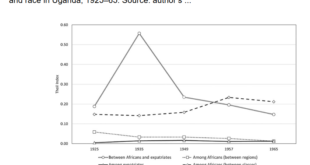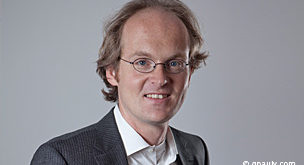from Lars Syll In practice, what math does is let macro-economists locate the FWUTVs [facts with unknown truth values] farther away from the discussion of identification … Relying on a micro-foundation lets an author say, “Assume A, assume B, … blah blah blah … And so we have proven that P is true. Then the model is identified.” … Distributional assumptions about error terms are a good place to bury things because hardly anyone pays attention to them. Moreover, if a critic does see that...
Read More »The ‘Billions to Trillions’ charade
from Jayati Ghosh The international-development sector has become fixated on calculating financing gaps. Hardly a day goes by without new estimates of the funds low- and middle-income countries (LMICs) need to meet their climate targets and achieve the United Nations Sustainable Development Goals (SDGs). The Independent High-Level Expert Group on Climate Finance, for example, estimates that developing and emerging economies (excluding China) need $2.4 trillion annually by 2030 to close...
Read More »Using the Theil inequality index to show and analyse increased colonial exploitation
Some time ago, I delved into the unique advantages of the Theil index of inequality over the Gini index, when data is available. The Theil index offers a distinct advantage in its ability to provide a consistent quantitative deconstruction of inequality. It does so by utilizing various concepts such as class, region, gender, or any other relevant factor. This feature allows for a comprehensive explanation of (changes in) inequality using the same set of concepts. The Theil index...
Read More »Global warming and the threat of cheap Chinese EVs
from Dean Baker Suppose the G-7 finance ministers sat down and worked out a plan to spend tens of billions of dollars a year to subsidize developing countries in their transition to a green economy. Many of us might think this is a good idea since global warming poses a real threat to the planet. Unfortunately, the G-7 finance ministers seem to have done the exact opposite. According to the coverage in the New York Times, they discussed ways to retaliate against China over its own plans...
Read More »DSGE models — a total waste of time
from Lars Syll While one can understand that some of the elements in DSGE models seem to appeal to Keynesians at first sight, after closer examination, these models are in fundamental contradiction to Post-Keynesian and even traditional Keynesian thinking. The DSGE model is a model in which output is determined in the labour market as in New Classical models and in which aggregate demand plays only a very secondary role, even in the short run. In addition, given the fundamental...
Read More »Lost opportunities?
from Peter Radford A pile of bricks is not a house. A group of individuals is not an economy. A lot has to happen between the one and the other. Which is why writing theories about economies as if it were simply an accumulation of individuals and their associated capital base misses the mark. Nor is it simply a matter of how those individuals behave —rationally or not — their interactions create novelty that cannot and does not exist at the individual level. Of course economists...
Read More »The problem with electric vehicles
from Dean Baker For the last quarter century, those of us hoping we could slow global warming were anxious to see a quick conversion to electric vehicles (EVs). If we could get most people using electric vehicles, and have the energy coming from clean sources, we could radically reduce greenhouse gas emissions. The problem was that EVs were considerably more expensive than their conventional counterparts. There were savings in operation due to lower maintenance, and the electricity...
Read More »With a modest financial transactions tax, Jim Simons would not have been superrich
from Dean Baker The New York Times reported that Jim Simons, the founder of Medallion hedge fund, died this week. As a result of his fund, according to the article, he accumulated more than $20 billion over his lifetime. Simons was a math genius who had made many important breakthroughs in various areas of math. Back in the 1980s, he decided that he could make far more money on Wall Street than in doing math at a university. He thought that with sophisticated algorithms and cutting-edge...
Read More »Weekend read – A STIGLITZ ERROR?
from Peter Radford You can’t fight a war without understanding your enemy. That’s an adage as old as war itself. Which means it’s very old. Joe Stiglitz doesn’t understand his enemy. Now, that’s an odd thing to say bout someone who’s worldview is hardly a secret. Stiglitz has given it his best shot for decades. He’s one of the few big name economists worth reading on a regular basis. But that doesn’t mean he always says things that add up. He’s a roll lately and his latest book is...
Read More »Economics — a dismal and harmful science
from Lars Syll It’s hard not to agree with DeMartino’s critique of mainstream economics — an unethical, irresponsible, and harmful kind of science where models and procedures become ends in themselves, without consideration of their lack of explanatory value as regards real-world phenomena. Many mainstream economists working in the field of economic theory think that their task is to give us analytical truths. That is great — from a mathematical and formal logical point of view. In...
Read More » Real-World Economics Review
Real-World Economics Review




